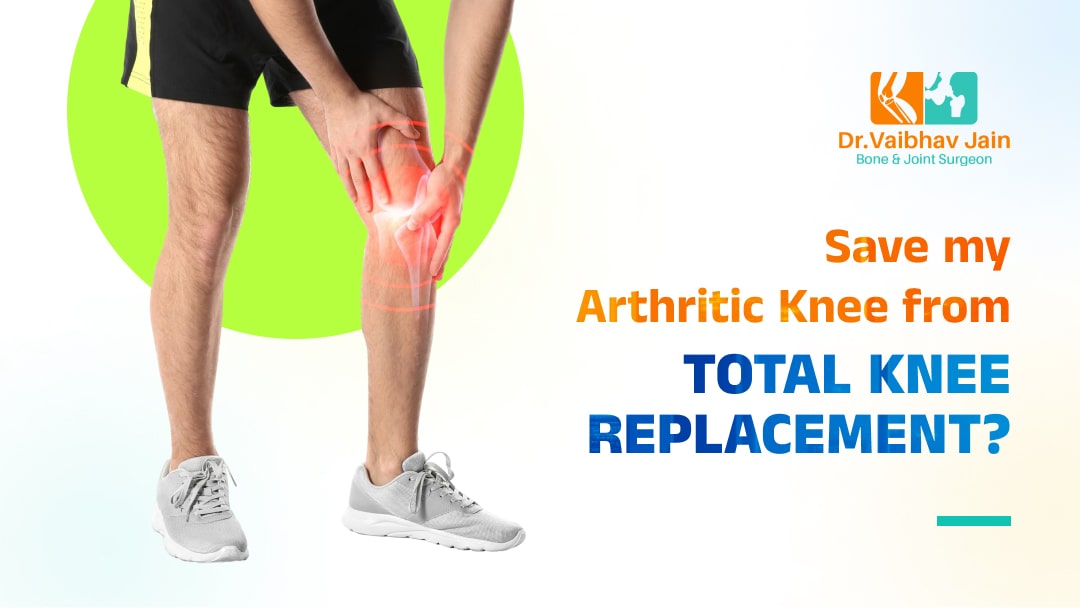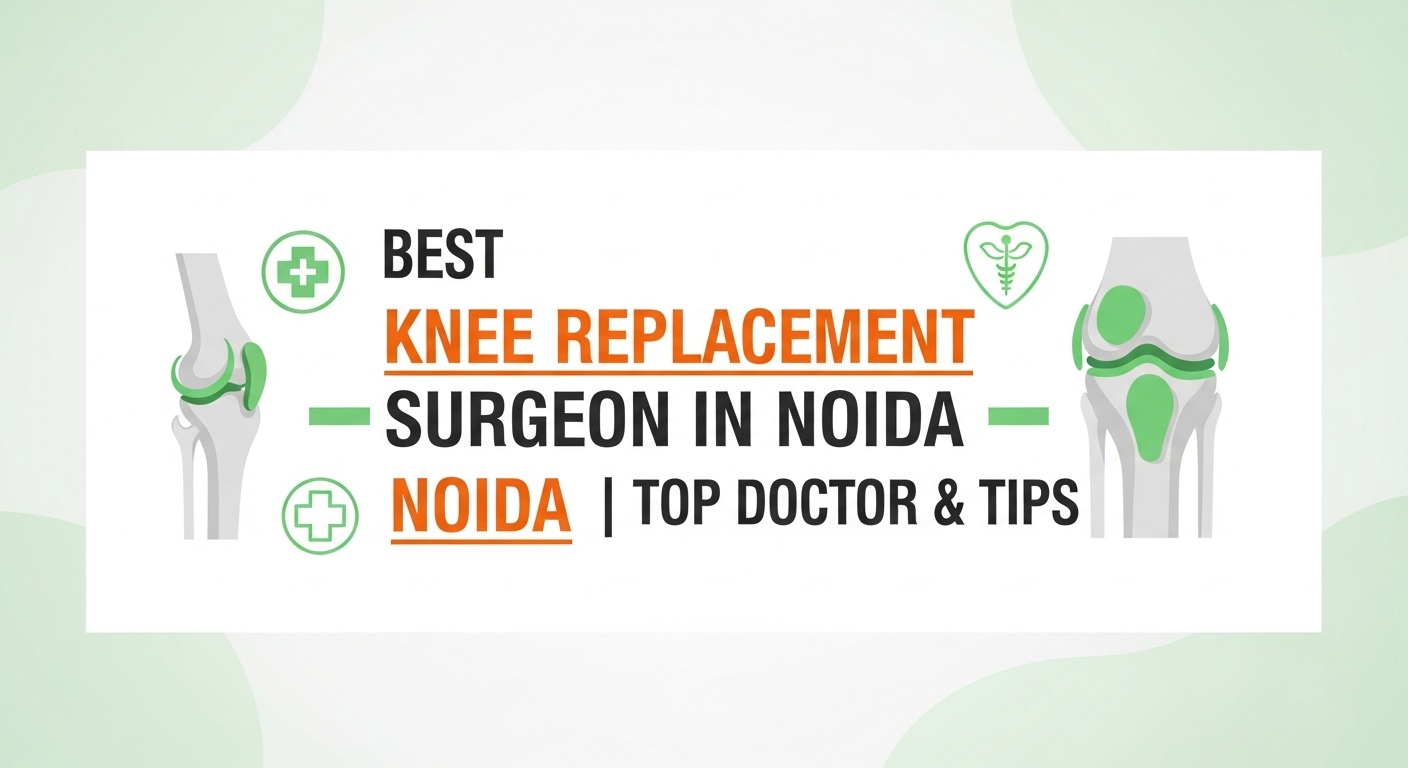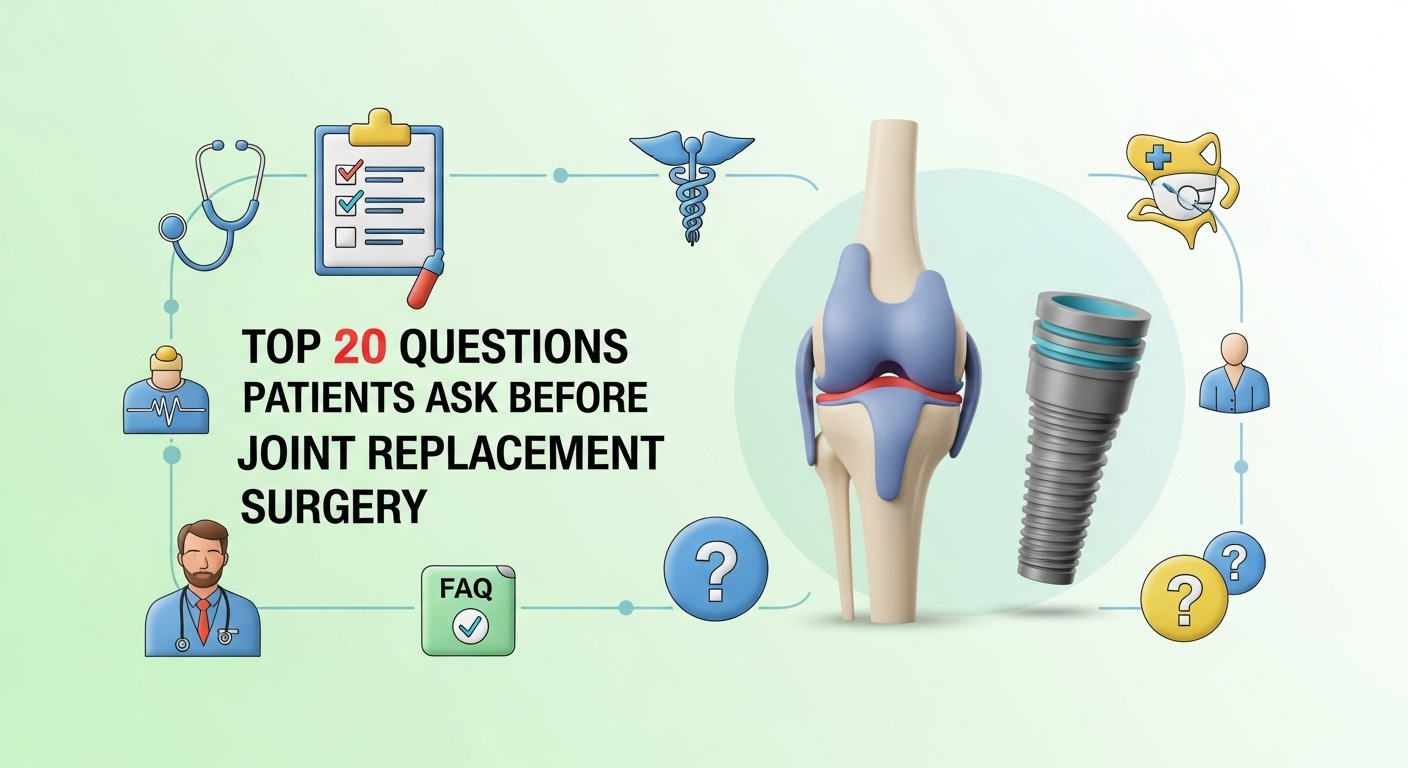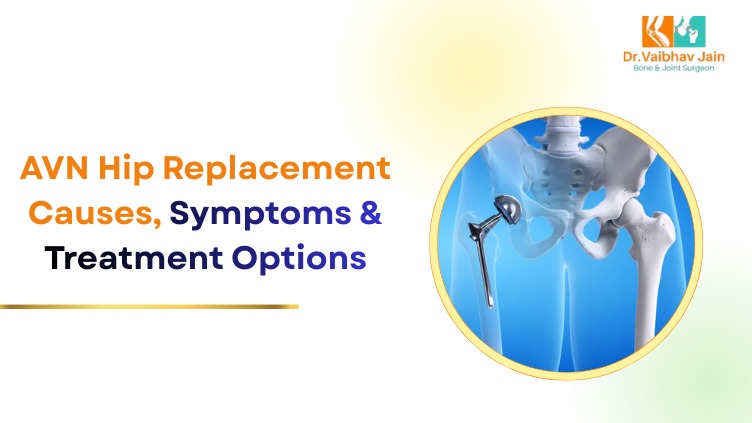Does your knee hurt when you walk, play sports, or go up stairs? This kind of pain is often from arthritis. Arthritis is what happens when the cushioning inside your knee wears out over time. For people with serious arthritis, a surgery called Total Knee Replacement can be a great way to find relief. Dr. Vaibhav Jain is a highly skilled bone and joint doctor who focuses on knee and hip surgeries. With over 15 years of experience and more than 6,200 successful operations, he is an expert in knee replacements.
What is a Total Knee Replacement?
A Total Knee Replacement is a surgery to fix a knee severely damaged by arthritis. The surgeon removes the damaged ends of your thigh and shin bones and replaces them with smooth artificial parts made of metal and plastic. This creates a new joint that moves without pain, relieving chronic pain and restoring comfortable movement.
Types of Total Knee Replacement Surgery
When the cushioning (cartilage) in your knee wears out, it can cause a lot of pain. Surgery can replace the damaged parts with artificial ones. Here are the main types of surgery doctors use.
| Type of Surgery | What Does It Do? |
|---|---|
| Total Knee Replacement (TKR) | Replaces all three parts of the knee joint that are damaged. This is the most common type. |
| Partial Knee Replacement (PKR) | Only replaces the one specific part of the knee that is most damaged. The healthy parts are left alone. |
| Custom Knee Replacement | Uses a 3D model of your knee to create custom-fitting parts and guides for surgery. |
| Robot-Assisted Surgery | The surgeon uses a robotic arm to help perform the surgery with great precision. |
Who Needs a Total Knee Replacement?
You might be a candidate for this surgery if you have most of these signs:
- Your knee pain is severe and never seems to go away.
- Your knee is stiff, swollen, and hard to bend or straighten.
- Everyday activities such as walking, shopping, or climbing stairs can become painful and difficult.
- Your knee pain stops you from sleeping well at night.
- Treatments like medicine, physical therapy, or injections don’t help enough anymore.
- Your knee joint is damaged, most often by arthritis (the “wear and tear” that happens over time).

Advantages of Total Knee Replacement
If your knee is badly damaged by arthritis or an injury, a Total Knee Replacement can help. Think of it like getting a brand new hinge for a creaky door. Here’s how it helps:
- No More Pain: Stop constant, severe knee pain for good.
- Move Easier: Walk, climb stairs, and sit down with much less effort.
- Stand Straighter: Correct a bent or crooked knee to improve your posture.
- Live Better: Reduce pain to be more active, enjoy hobbies, and improve your mood.
- Long-Lasting: A new knee is an investment that can last 20 years or more.
Recovery After Total Knee Replacement Surgery
Right After Surgery
You’ll wake up with a bandage on your knee. Nurses will manage your pain. A physical therapist will quickly help you sit up, stand, and take your first steps with a walker. You’ll wear special stockings to aid circulation.
The First Few Weeks at Home
- Prioritize exercises to strengthen your knee.
- Use your walker or crutches as directed.
- Ice and elevate your leg to reduce swelling.
- Rest often and avoid overdoing it.
Recovery Timeline
- 3-6 Weeks: Switch to a cane; gain confidence walking.
- 6-12 Weeks: Resume most daily activities.
- 3-6 Months: Feel significantly better and enjoy low-impact activities.
Conclusion
If your knee hurts from arthritis, remember that a total knee replacement is a last resort. Many other treatments can reduce pain and improve movement, often avoiding major surgery. The most important step is to see a specialist like Dr. Vaibhav Jain. He can diagnose your knee and explain all your options. Don’t wait to get the help you need.
FAQs for Total Knee Replacement
1. What is a Total Knee Replacement?
Total knee replacement is a surgery to fix a very damaged knee. The doctor takes out the worn-out parts of the knee and puts in new, artificial parts made of metal and plastic. It’s usually done when the cartilage is completely worn out and other treatments haven’t worked.
2. What is a Partial Knee Replacement?
A Partial Knee Replacement is a surgery where only the most damaged part of your knee is replaced. It’s less invasive than a full replacement, so recovery is often faster and it can feel more like your natural knee.
3. How do I know if I need a Total Knee Replacement or an alternative?
The best way to know is to get a personal consultation. Dr. Vaibhav Jain will find the best treatment for your knee pain. He will examine your knee, review your X-rays, and talk with you about your goals to create a plan that is right for you.
4. Can Dr. Vaibhav Jain perform alternatives to Total Knee Replacement?
Yes, absolutely. Dr. Jain is a highly experienced bone and joint surgeon (orthopedic surgeon). He specializes in surgeries that save the natural parts of the knee. He uses advanced techniques like partial knee replacements and other options.
5. Where can I see Dr. Vaibhav Jain for a consultation?
Dr. Vaibhav Jain practices at the Vishwastha Clinic in Noida. You can schedule a visit there to get a personalized opinion on your knee pain and all your treatment options.







